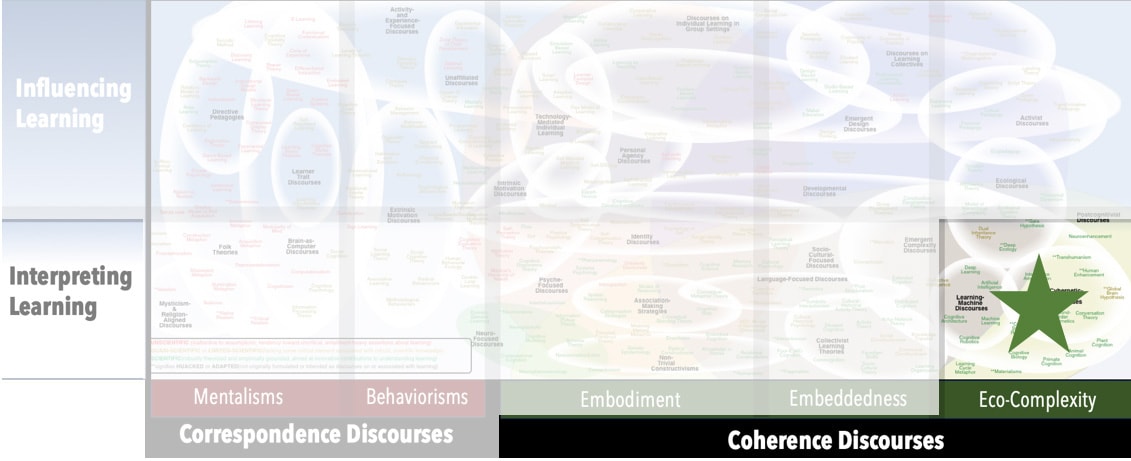Focus
Identifying and building on the source of shared knowledgePrincipal Metaphors
- Knowledge is … scope of potential shared understandings
- Knowing is … shared understanding
- Learner is … knowledge-producing system
- Learning is … conversing
- Teaching is … N/A
Originated
1970sSynopsis
The core idea of Conversation Theory is that learning occurs recursively through “conversations” – that is, occasions in which two or more cognitive agents (living organisms and/or machines) use language-oriented systems (everyday language, discipline-based language, or meta-language) with the intention of agreeing on meanings of a given concept. Some shared meanings are unstable and transient, but those points of mutual understanding that are robust are reproducible can come to serve as the stable reference points needed for the construction of scientific and other knowledge. Three modes of learning are posited:- Holistic Learning (Gordon Pask, 1970s) – a manner of engaging with an area of established knowledge that is oriented by higher-order relations
- Serialist Learning (Gordon Pask, 1970s) – a well-sequenced (but not necessarily linearized) engagement with an area of established knowledge
- Versatile Learning Gordon Pask, 1970s) – an ideal manner of learning that modulates both detail-focused Serialist Learning and big-picture Holistic Learning
- Teachback (Gordon Pask, 1970s) – teaching another what has been learned, undertaken with the intention of enhancing one’s own learning
Commentary
There have been relatively few commentaries published on Conversation Theory, and those that have come out have leaned strongly toward complimentary interpretations. Often Conversation Theory, which was developed in the 1970s, is described as “ahead of its time.” Even though it was based largely on observations of teacher–student interactions, some of its insights have come to be integral in Cybernetics, Machine Learning, and Artificial Intelligence.Authors and/or Prominent Influences
Gordon PaskStatus as a Theory of Learning
Conversation Theory is a theory of learning.Status as a Theory of Teaching
Conversation Theory is not a theory of teaching, although teacher–learner interactions were a key grounding in the theory’s development.Status as a Scientific Theory
Since being published, an abundance of evidence has been generated to demonstrate that Conversation Theory is theoretically sound.Subdiscourses:
- Holistic Learning
- Serialist Learning
- Teachback
- Versatile Learning
Map Location

Please cite this article as:
Davis, B., & Francis, K. (2023). “Conversation Theory” in Discourses on Learning in Education. https://learningdiscourses.com.
⇦ Back to Map
⇦ Back to List
